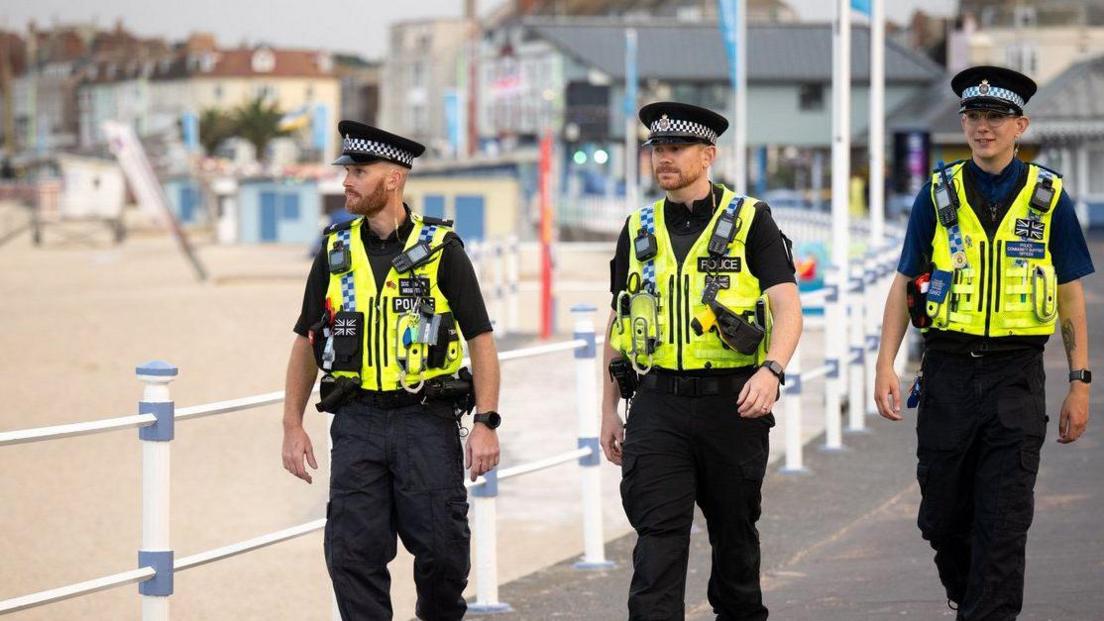A night with police tackling anti-social behaviour
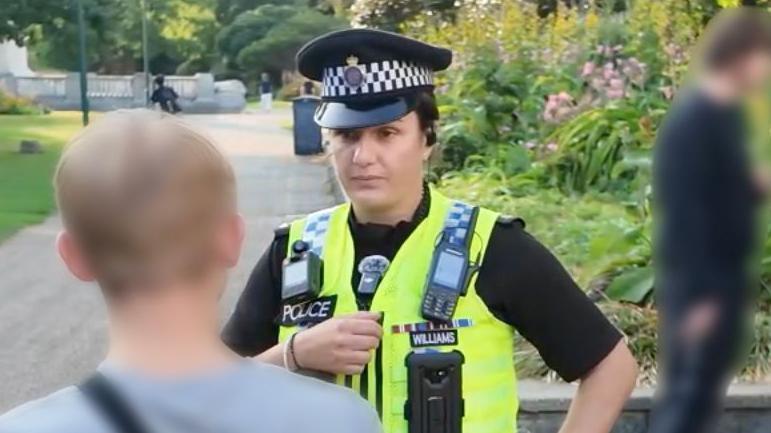
Sophie Williams, a temporary inspector for Dorset Police, says hotspot policing is making a difference
- Published
A tourist hotspot has been at the centre of national headlines this summer because of anti-social behaviour. We spent an evening with Dorset Police to see how they are dealing with the issue.
Bournemouth beach brings in millions of visitors every summer because of its seven miles (11.2km) of coastline.
Sophie Williams, a temporary inspector for Dorset Police, said it draws people from all over.
"It attracts people from out of town, adults and a lot of youths that come from London and Hampshire that have been causing issues, particularly at the beaches," she says, before taking us on a patrol of Central Gardens.
"The use of NOS [nitrous oxide] gas and organised fights between their groups has been something that we are targeting to try and reduce."
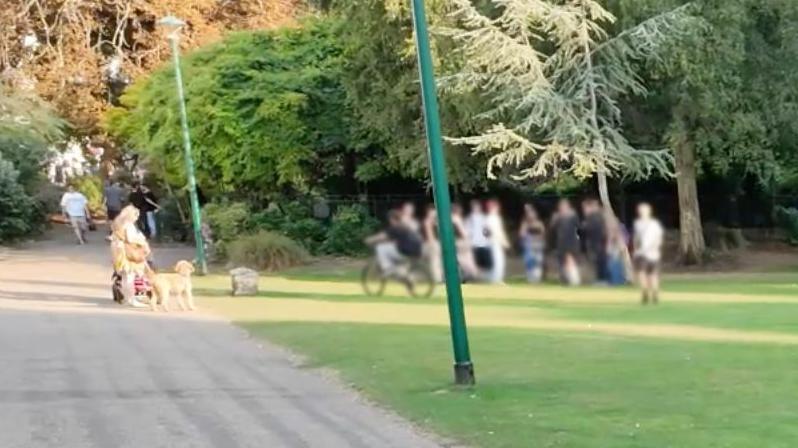
A group of teenagers meet at Bournemouth's Central Gardens
In the gardens, we are met with a group of about 15 teenagers and Ms Williams logs her location on an internal app showing police presence in the area.
She says the group, named by the force as the "function", regularly meet in the same place.
On this occasion, they are meeting before heading off to the fireworks which are on throughout summer.
Ms Williams quickly identifies who is drinking alcohol before asking for their ID.
For those that do not have a physical copy, their bottles and cans are promptly confiscated.
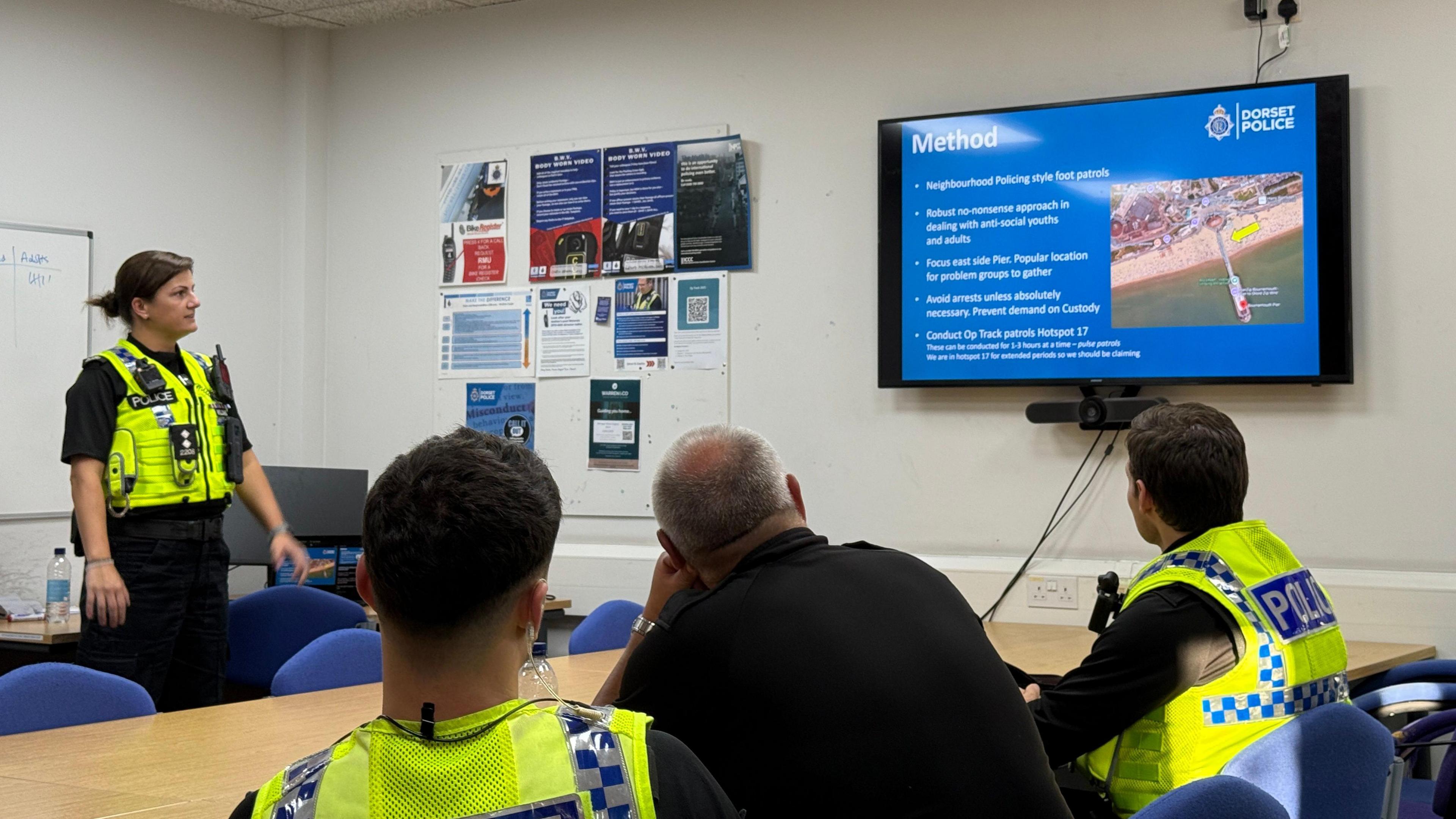
A briefing was held before the team started their patrols
One boy was agitated by the police presence and started to shout and use inappropriate language.
"Do you smell bacon?" he says, prompting Ms Williams to introduce herself.
She tells the boy: "I'm Sophie and I am in this area quite a lot, we are not out to make your life difficult this evening, but you have highlighted yourself out of this group.
"This is your first warning this evening and if I have cause to speak to you again then I will be issuing you a dispersal notice."
The boy is issued a dispersal notice by another officer after he continued to cause problems.
Three other teenagers from the group, who said they were local, approached us and I asked them if their parents knew where they were.
One of them told us he did not really speak to his parents, while another said she had previously chosen to lie to her mother.
"I don't do it anymore because the lying got in me in so much trouble there's not much point," she tells me.
"There are worse things that I have been doing but now she has my location."
Another is issued a dispersal order for her language and behaviour and she also has her alcohol confiscated after she could not provide ID.
'All about prevention'
Once Ms Williams felt the area was covered by enough officers, she walks us through the town centre and Lower Gardens, explaining why some of the group were asked to leave.
"For the most part they are normally decent and polite but as we walked down there were people who identified themselves by certain verbals and behaviour they were using," she says, referring to swearing and shouting.
She also tells us a 30-year-old man who had just been released from custody and was drunk was also issued a dispersal order.
According to police, five other dispersal orders were issued, one man was taken in an ambulance for drinking too much alcohol and a stop and search was carried out.
That night 25 police officers continued foot patrols in Bournemouth town centre.
Despite anti-social behaviour still being an issue, Ms Williams insists hotspot policing - which sees extra patrols in areas with high crime rates - is working.
"It is all about prevention," she says.
"The drops in serious violence last year were 70% and anti-social behaviour was almost 68%.
Get in touch
Do you have a story BBC Dorset should cover?
You can follow BBC Dorset on Facebook, external, X (Twitter), external, or Instagram, external.
- Published27 July
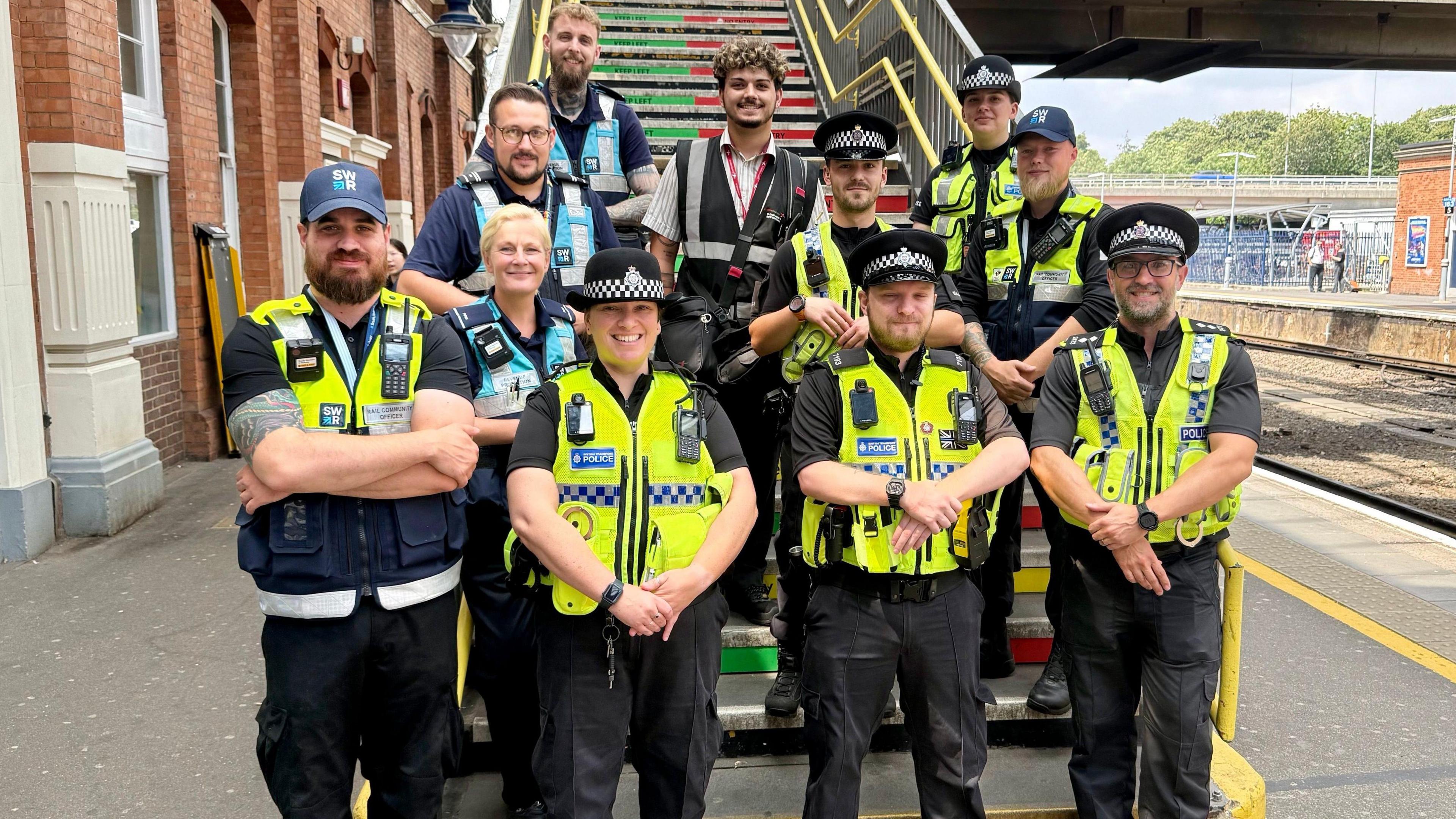
- Published20 July
